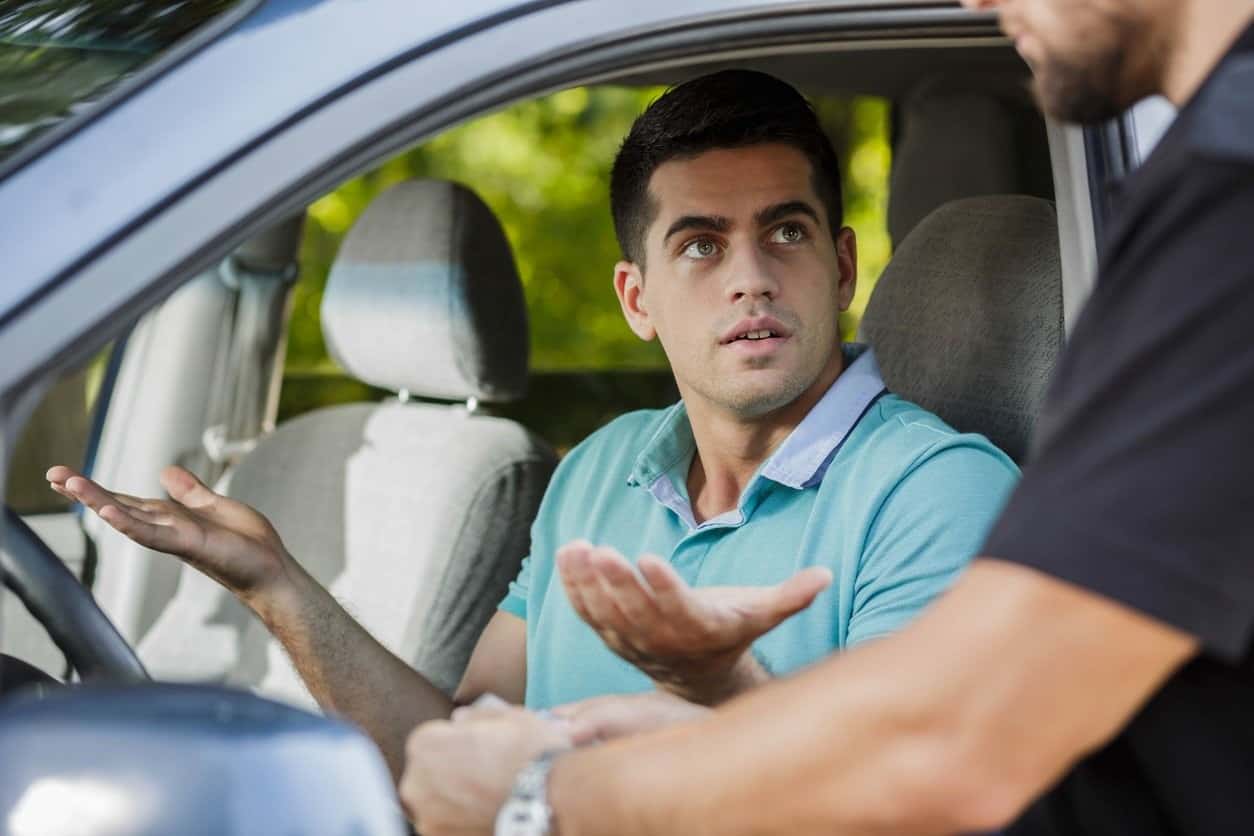Colorado Theft Laws: Penalties and Defense Strategies
July 1, 2025

What’s the Difference Between Theft and Burglary in Our State?
Supreme Court Upholds Firearms Ban for Domestic Violence
Posted by: Jacob E. Martinez
Category: Search and Seizure
One of the biggest catalysts in the debate surrounding police shootings has been live videos and footage of police activity. Most recently, a Facebook Live Video was broadcasted of Minnesota police shooting Philando Castile. The video went viral and caused an uproar, as well as a discussion of issues including police relations and gun ownership.
Now, citizens are encouraged and allowed to record law enforcement activity if they believe the officer is doing something illegal or unethical. But no one wants to be recorded, and law enforcement officers may use intimidation or threats of arrest to get you to stop filming them. Citizens have even been arrested and charged for photographing the police. But in most of these cases, the charges were dropped.
In the event that you feel the need to record police activity, you should know your rights and be able to communicate these rights calmly to officers. Keep the following rules and policies in mind in case this ever happens to you.
Understand that citizen interference with law enforcement activity is illegal. If your recording is not letting an officer complete his or her duties, you may be arrested. However, if you are simply recording an officer and not physically interfering with his or her actions, you are acting completely within your rights.
Photography on Public Property
If you are on public property, you have every right to take photographs or record video content. Anything in plain view, including federal buildings and law enforcement officers, can be photographed or recorded.
However, private businesses, buildings, and spaces have the right to prohibit photography or video recording. Pay attention to any signs or warnings regarding photography and recording when you enter a space.
If you are trespassing on private property to record law enforcement activity, you may be arrested for trespassing, but not for photographing or recording.
Seizing Digital Devices and Recording Equipment
To prevent you from posting photographs or video content, an officer may try to confiscate your recording or mobile device. But police cannot search or seize these devices, even after you have been arrested, without a proper warrant.
They especially cannot seize or search your recording equipment if you are simply in a confrontation. You do not have to hand over any devices to law enforcement simply because an officer demands that you do so.
Let’s wrap this up with sentences and sound bites to remember in case law enforcement is trying to prevent you from legally recording an officer. Remember, you also have the right to refuse any questions that the police ask you.
Review your rights and rehearse these sentences in case you are in a confrontation with an officer. It is also legal to record the conversation you have between you and an officer in the event of a confrontation.
If an officer continues to use intimidation or arrests you, it is important to contact an attorney as soon as possible. Charges for photographing police in a public space can and should be dropped, so it is important to fight for your rights or the rights of a loved one with an experienced Denver defense attorney.
About the Author:
Denver-based criminal defense and DUI attorney Jacob E. Martinez is a knowledgeable and experienced litigator with a record of success providing innovative solutions to clients facing criminal charges of any severity. Mr. Martinez has been designated a Top 100 Trial Lawyer by the National Trial Lawyers and has been awarded both the Avvo Client’s Choice Award and Avvo Top Attorney designation, evidencing his reputation for his exemplary criminal and DUI defense work and high moral standards.
Jury Trial - Not Guilty
Jury Trial - Not Guilty
Arapahoe 1st Degree Assault/Vehicular Assault
Jury Trial - Not Guilty
Denver Domestic Violence Assault Case
Jury Trial - Not Guilty
Denver D.V. Assault
Jury Trial - Not Guilty
Denver Careless Driving Resulting in Death
Jury Trial - Not Guilty
Jefferson County Felony Menacing
Jury Trial - Not Guilty
Adams County DUI
Jury Trial - Not Guilty
Jefferson County DUI
Jury Trial - Not Guilty
Jefferson County DUI
Jury Trial - Not Guilty
Jefferson Vehicular Assault/DUI
Jury Trial - Not Guilty
Jefferson County DUI
Jury Trial - Not Guilty
Boulder County DUI case
Jury Trial - Not Guilty
Arapahoe County DUI case
Jury Trial - Not Guilty
Adams County DUI case
Jury Trial - Not Guilty
Douglas County DUI case
Jury Trial - Not Guilty
Gilpin County DUI case
Dismissed
Broomfield County Probation Revocation case
Dismissal
Arapahoe County DUI case
Deferred Judgment
Arapahoe County DUI case
Deferred Judgment
Douglas County DUI case
Deferred Judgment
Larimer County DUI case
Deferred Judgment
Arapahoe County DUI Case
Deferred Judgment
Denver Felony Burglary Case
Deferred Judgment
Arapahoe County DUI case
Dismissed
Arapahoe County Protection Order Case
Dismissed
Golden Destruction of Property case
Dismissed
Jefferson County Protection Order case
Dismissed
Jefferson County Domestic Violence case
Dismissed and Sealed
Jefferson County DUI case
Dismissed
Denver Major Traffic Offense case
Dismissed and Sealed
Broomfield County Domestic Violence case
Dismissed
Summit County DUI Revocation
Dismissed
Denver DUI Revocation
Dismissed
Denver DUI Revocation
Dismissed
Denver DUI +.2 Involving Accident and Injury case
Dismissed
Denver DUI/Habitual Traffic Offender case
DISMISSAL
Denver District Aggravated Theft
Dismissed
Greenwood Village Assault case
Dismissal
Elbert County DUI
Dismissed
Arapahoe County Domestic Violence case
Dismissal
Jefferson County DUI
Dismissal
Denver Municipal Assault
Dismissed
Boulder County Domestic Violence Assault case
Dismissed
Wheat Ridge Assault case
Dismissed
Jefferson County DUI case, with 2+ Prior Convictions
Dismissed
Arapahoe County Domestic Violence case
Dismissed
Broomfield County Domestic Violence case
Dismissed with No Charges Filed
Jefferson County Felony Theft case
Dismissed
Arapahoe County Felony Theft case
Dismissed
Boulder County Felony Theft case

